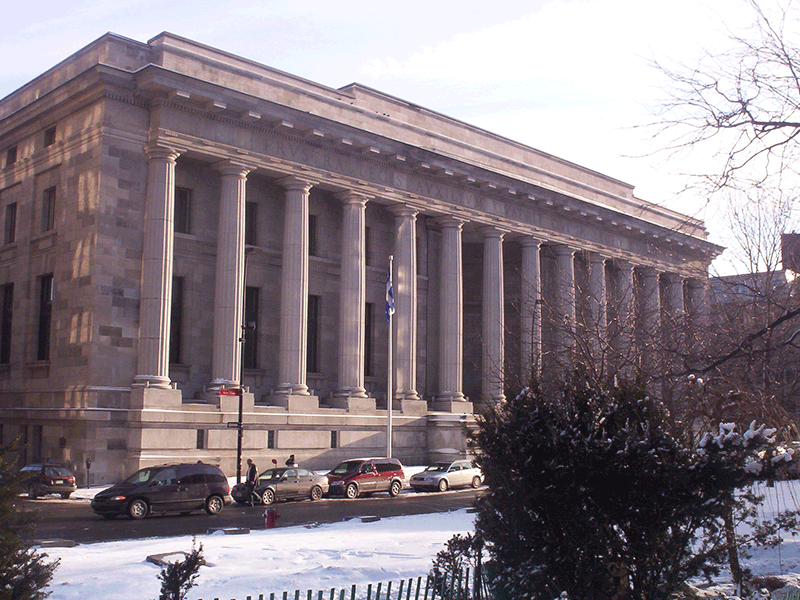In a split decision, the Quebec Court of Appeal dismissed an application to have sections of a law banning the wearing of religious symbols in the public service stayed until the appellants’ constitutional challenge is heard.
While Justices Robert Mainville and Dominique Bélanger rejected the injunction sought by the National Council of Canadian Muslims and Canadian Civil Liberties Union, Chief Justice Nicole Duval Hesler would have allowed the appeal in part. Her opinion is that Bill 21’s prohibition on teachers and principals in the public school system wearing such symbols should be suspended during proceedings.
The law, passed in June, also bars police officers, judges, government lawyers, and others in the public service considered to represent state authority from wearing such symbols on the job.
The appeal was brought after a Quebec Superior Court judge in July dismissed the two groups’ bid to have the law’s implementation suspended pending the merits of its case being heard.
They argue that the law is unconstitutional because Quebec does not have the jurisdiction to regulate religious observance, limits the opportunities of minorities, disproportionately penalizes women, and is too vague in its definition of religious symbols as to be applied equitably.
In the 37-page judgment handed down Dec. 12, Mainville and Bélanger concurred that any inconvenience to those who may be affected now by the law does not take precedence over suspending “at this preliminary stage” legislation not yet proven unconstitutional.
Bélanger wrote it would have to be clearly shown that the National Assembly was not within its jurisdiction in including the notwithstanding clause in the law, as it did.
“The notwithstanding clause dictates that, at this stage of the case, the courts must abandon to their fate women graduates who are willing to work and who, for the sole reason that they wear the veil, have been denied access to a job for which they hold all the skills.”
Mainville wrote: “This is not a matter of endorsing the act respecting the laicity of the state, nor should the dismissal of the appeal be confused with any opinion on the part of the court for or against this act, which has inflamed passions on both sides. The opinion of the judge as a citizen does not form part of the legal debate.
“Rather, the exercise here consists in adjudicating whether or not to suspend the act based on the applicable legal framework.”
He also commented: “The vast majority of the main religions practised in Quebec, including Christianity, Judaism and Islam, do not, at first glance at least, seem to make the wearing of religious symbols at work an absolute requirement of the faith. At least, this has not been proved at this stage of the file.
“The act, therefore, does not seek to prohibit access to these positions for Christians, Jews, Muslims or members of most other religions.”
Nor has it been proven that women are more affected by the law than men, he writes, noting that the evidence provided is “piecemeal.”
He allows, however, that those whose faith does require the wearing of religious symbols at all times will “suffer serious and irreparable harm,” but that the National Assembly is within its authority to have invoked the Constitution’s notwithstanding clause to override religious and gender equality rights.
Bélanger agreed with Duval Hesler that female teachers who “wear the veil” are suffering serious and irreparable harm while this case makes it way through the judicial system, but differs with her on the application of the so-called balance of convenience test, or weighing their suffering against the “harm to the public interest.”
“It follows from this principle that courts will not suspend a statute passed by a legislature without having performed a full constitutional review. Consequently, a stay will only be ordered in clear cases.”
The Centre for Israel and Jewish Affairs, which is opposed to the bill, issued a nuanced statement after the decision.
“Today’s ruling … does not constitute a judgment on the merits of the law,” said CIJA Quebec co-chair Rabbi Reuben Poupko. “In the next several months, the courts will hear four legal challenges examining the legislation’s provisions on religions symbols.
“CIJA will continue to express the community’s opposition to the ban on religious symbols and closely monitor developments in all challenges being heard by the tribunals.”
